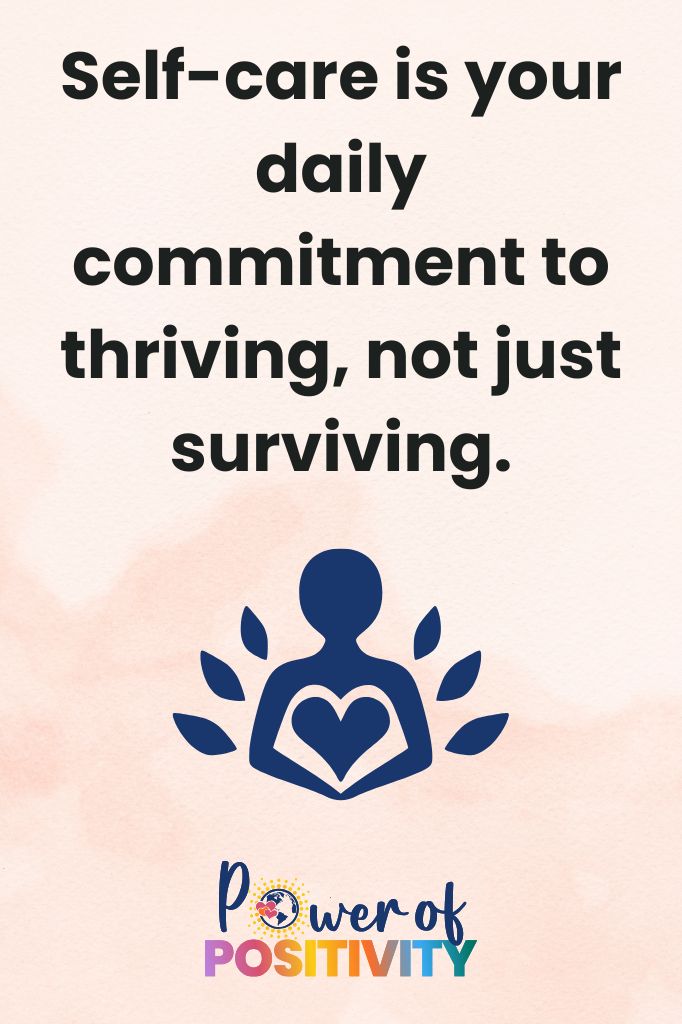Living with an autoimmune disorder can feel like your body’s defenses have turned into formidable challengers. This struggle may be overwhelming, but finding the best foods for autoimmune disorder management can offer more support and relief than many realize.
The foods you choose directly impact inflammation and overall well-being, helping manage symptoms and boosting energy levels. Curious how to make your meals your allies?
This guide dives into key foods known to calm inflammation, nourish your body, and strengthen your immune response naturally. Explore these dietary changes to empower your path toward wellness and embrace hope with each bite. Your journey to feeling better starts here.
The Role of Diet in Managing Autoimmune Health
Diet plays a crucial role in influencing autoimmune conditions by affecting inflammation levels and immune responses.
While diet alone is not a cure, it can significantly improve quality of life and symptom management for those with autoimmune diseases.
Autoimmune disorders are characterized by chronic inflammation where the body’s immune system mistakenly attacks healthy tissues.
- 🌿 Anti-Inflammatory Benefits
Diets rich in anti-inflammatory foods, such as the Mediterranean diet, have been shown to reduce markers of inflammation and improve symptoms in autoimmune conditions like rheumatoid arthritis and inflammatory bowel disease. - 🦠 Gut Health Connection
The gut microbiome plays a significant role in immune regulation. Diets high in fiber and prebiotics support a balanced gut microbiota, which can enhance gut barrier function and decrease systemic inflammation. - 🥑 Nutrient-rich foods
Specific nutrients, such as omega-3 fatty acids, vitamin D, and antioxidants, are essential in supporting immune function and reducing inflammation. - 🚫 Avoidance of Triggers
Certain foods, such as processed sugars, trans fats, and highly processed items, can increase inflammation and worsen autoimmune responses.
Best Anti-Inflammatory Foods for Autoimmune Support
A well-rounded diet can be a powerful ally for those navigating autoimmune disorders. By choosing anti-inflammatory foods, you can help regulate your immune system, reduce chronic inflammation, and improve overall health.
Below, we highlight the most effective foods to incorporate into your diet to support immune function and promote a balanced, healthier lifestyle.
Fatty Fish & Seafood
Fatty fish are packed with omega-3 fatty acids, essential for reducing inflammation and supporting immune health.
Regular consumption can help manage symptoms associated with autoimmune disorders and improve overall well-being.
- Salmon, mackerel, sardines, herring.
- High omega-3 content aids in reducing inflammatory responses.
- Wild-caught fish for better nutrient density.
- Serving recommendation: 2-3 servings per week.
Turmeric & Ginger
Turmeric, particularly its active compound curcumin, is celebrated for powerful anti-inflammatory properties. Studies have shown its efficacy in alleviating symptoms related to autoimmune conditions like rheumatoid arthritis and inflammatory bowel disease.
Ginger complements turmeric well, offering both anti-inflammatory and antioxidant benefits. Consuming these spices as teas, in meals, or through supplements can help manage chronic inflammation.
Cruciferous Vegetables
Broccoli, cauliflower, kale, and Brussels sprouts are rich in sulforaphane and other antioxidants that help regulate immune responses and reduce inflammation.
These vegetables contain glutathione, a potent antioxidant that supports cellular health and may reduce oxidative stress linked to autoimmune flare-ups.
- Cruciferous vegetables are rich in dietary fiber, which promotes gut health, an essential aspect of managing autoimmune disorders.
- They provide essential vitamins, including vitamin C and K, that support immune function and cell repair.
- Contain glucosinolates, which aid in the detoxification process, helping to clear out potential inflammation-causing substances from the body.
- The carotenoids contained in these vegetables contribute to antioxidant activity, further combating oxidative stress.
Omega-3 Rich Seeds
Flaxseeds, chia seeds, and hemp seeds are plant-based powerhouses rich in alpha-linolenic acid (ALA), a type of omega-3 fatty acid.
These seeds contribute to reduced inflammation and promote gut health, which is vital for individuals managing autoimmune disorders.
Adding these to smoothies or salads boosts omega-3 intake, especially for those who prefer non-animal sources.
- Supports digestion and promotes a healthy gut microbiome.
- Helps reduce markers of chronic inflammation.
- Provides essential amino acids for immune function.
- Helps combat oxidative stress and inflammation.
- Easily added to meals, snacks, and baked goods.
Fermented Foods
Foods like sauerkraut, kimchi, kefir, and yogurt with live cultures promote gut health by enhancing the gut microbiome.
A balanced microbiome is essential for regulating immune function and minimizing the “leaky gut” phenomenon often associated with autoimmune disorders.
Ensuring these foods contain live active cultures is key to reaping their full benefits.
Green Tea
Green tea is known for its high content of polyphenols such as EGCG, which are powerful antioxidants with anti-inflammatory properties.
- Modulates immune responses and reduces oxidative stress.
- Serving recommendation: 1-2 cups daily.
- Added perks: May assist in preventing autoimmune flare-ups.
Leafy Greens
Leafy greens are nutrient powerhouses rich in vitamins A, C, K, and folate, along with fiber and antioxidants.
They support gut health and strengthen the immune system by combating oxidative stress, which is often elevated in individuals with autoimmune disorders.
Spinach and kale are standout options that can be easily added to salads, smoothies, or stir-fried dishes.
Berries & Antioxidant-Rich Fruits
Berries like blueberries, strawberries, and cherries are packed with antioxidants, particularly anthocyanins, which give them their rich colors and powerful health benefits. These antioxidants help neutralize free radicals, reducing oxidative stress and inflammation.
Regularly consuming antioxidant-rich fruits strengthens the immune system and can lower inflammation markers, making them highly beneficial for individuals managing autoimmune disorders.
- Potent compounds that reduce oxidative damage and inflammation.
- Supports immune function and cellular repair.
- Promotes gut health by supporting beneficial gut bacteria.
- Easy to add to smoothies, snacks, or breakfast dishes.
Bone Broth
Bone broth contains collagen, amino acids, and minerals that support gut health and repair the intestinal lining.
A strong gut barrier helps minimize systemic inflammation and improves nutrient absorption, crucial for those with autoimmune disorders.
Incorporating bone broth into daily meals can provide soothing and sustained benefits for gut health.
Coconut Milk/Oil
Coconut oil contains medium-chain fatty acids, such as lauric acid, which exhibit anti-inflammatory and antimicrobial properties. They are known for stabilizing blood sugar levels and supporting overall immune health.
They can be used for cooking, baking, or adding to smoothies for an inflammation-reducing boost.
Additional Self-Care Tips for Managing Autoimmune Health

Maintaining optimal health with an autoimmune condition goes beyond diet. It involves adopting self-care habits that support immune function and reduce inflammation.
- 💧 Hydration
Staying hydrated is vital for flushing out toxins and maintaining the balance of bodily fluids, which supports immune function and reduces inflammation. Proper hydration can help manage autoimmune symptoms more effectively and contribute to overall well-being. - 🌙 Quality Sleep
Consistent, restorative sleep is crucial for immune regulation. Poor sleep can exacerbate inflammation and trigger flare-ups in autoimmune conditions. Establishing a regular sleep schedule, creating a calming bedtime routine, and limiting screen time before bed can enhance sleep quality and support immune health. - 🧘 Stress Management
Chronic stress can disrupt immune function and increase inflammation. Incorporating stress-reducing practices like mindfulness, deep breathing, yoga, and meditation can shift the body from a stress state to relaxation, enhancing immune responses and overall health. - 🕊️ Mindfulness
Mindfulness practices help calm the mind and body, reducing the production of stress hormones such as cortisol, which can negatively impact immune health. Regular mindfulness activities can lower stress levels, improve sleep quality, and promote better mental and physical resilience.
Foods to Avoid with Autoimmune Conditions
Managing an autoimmune condition often requires careful dietary choices to help reduce inflammation and avoid triggering immune responses. Here are key foods to limit or avoid:
- Refined Sugars and Sweeteners: High sugar intake can spike inflammation and disrupt immune function. Reducing processed sugars, such as those found in desserts and sugary drinks, can aid in better managing symptoms.
- Gluten and processed grains: Gluten can be problematic for many with autoimmune disorders, especially those with celiac disease. Even non-celiac autoimmune sufferers may find that gluten triggers inflammation and digestive discomfort.
- Dairy Products: For some individuals, dairy can contribute to inflammation and exacerbate symptoms like joint pain or digestive issues. Limiting or removing dairy may provide relief.
- Red and processed meats: These meats often contain high levels of saturated fats and additives, which can contribute to inflammation. Processed options may also include preservatives that could trigger immune responses.
- Vegetable Oils High in Omega-6: Oils like soybean, corn, and sunflower oil are rich in omega-6 fatty acids, which, when consumed in excess, can promote inflammation. Balancing omega-6 with omega-3 intake is essential.
- Fried and Fast Foods: Fried foods contain trans fats and other pro-inflammatory ingredients that can exacerbate inflammation. Reducing consumption of these foods helps maintain better immune health.
- Alcohol: Excessive alcohol intake can weaken the immune system and contribute to gut permeability, leading to inflammation and flare-ups.
Frequently Asked Questions
1. What role does exercise play in managing autoimmune conditions?
Engaging in regular, moderate exercise helps regulate immune function and reduces inflammation. It enhances circulation, supports joint mobility, and improves mental well-being, which can alleviate stress—a common trigger for autoimmune flare-ups.
2. How does gut health impact autoimmune disorders?
The gut microbiome is closely linked to immune health. A balanced microbiome promotes a strong gut barrier, preventing the “leaky gut” phenomenon often associated with autoimmune diseases. Supporting gut health with probiotics and fiber-rich foods can improve immune responses and reduce inflammation.
3. Why is managing stress critical for autoimmune health?
Chronic stress can lead to elevated cortisol levels, which may suppress immune function and increase inflammation. Managing stress through mindfulness, yoga, and deep-breathing exercises can help shift the body from a state of chronic stress to relaxation, enhancing immune health and symptom management.
4. Can specific nutrients influence autoimmune disease management?
Yes, certain nutrients like omega-3 fatty acids, vitamin D, and antioxidants play a key role in reducing inflammation and supporting immune function. Including foods like fatty fish, leafy greens, and antioxidant-rich berries in your diet can provide these essential nutrients.
A Last Word of Wisdom
Managing an autoimmune condition can be challenging, but the right lifestyle choices can make a significant difference.
Prioritizing anti-inflammatory foods, consistent hydration, restorative sleep, and stress management helps reduce inflammation and support immune health.
Remember, every small step towards balanced self-care strengthens your well-being. Ready to explore new habits that nurture your health?
Start today—because a healthier you begins with the choices you make each day. And hey, who knew taking care of yourself could be so empowering?



















